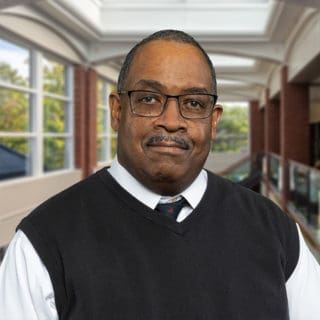
In the Franklin College Department of Sociology, you can learn how to study social situations, work with data and apply theoretical insights. You can be informed, knowledgeable and wise – prepared for a wide range of careers. If you are curious about how people get things done, then sociology is the discipline for you.
You will like sociology if you like studying people. Sociology majors usually focus on criminal justice, nonprofit leadership or pure sociology, but you can also develop an individualized major, using sociological methods to research a field for which you are passionate.
Download the Sociology Major Handout (PDF)
Departmental Highlights
Sociology is one of Franklin College’s most popular majors. In part, because students can easily combine sociology with another major, like biology, journalism or math. Having a double major will make you more valuable and unique in the job market.
- Each sociology professor has a degree in some other discipline (i.e., geography)
- Many sociology courses satisfy requirements for other disciplines (i.e., business)
- Sociology offers courses on institutions and processes (i.e., sports and globalization)
People, who love learning about other people, major in sociology. The sociology department faculty nurtures our students’ love of learning by encouraging them to study off-campus and overseas.
- Every sociology major completes at least one internship
- Most sociology majors tour at least six prisons
- Many sociology majors study overseas
- Some sociology majors have spent a semester abroad (Ireland, France, and elsewhere)
While some sociology graduates pursue advanced degrees, most immediately begin working after graduation – usually as police, parole and probation officers as well as business people, public servants and nonprofit employees. Sociology graduates prosper.
- Over 90% of sociology majors obtain jobs within a year of graduation
- Over 30% of sociology graduates work in private businesses
- Over 20% of sociology graduates work in social service agencies
- Over 15% of sociology graduates work in law enforcement
- Over 5% of sociology graduates enroll in postgraduate studies
- Alumni often say the sociology department prepared them well for life after college
Special Programs
Criminal justice is a program offered within the sociology major. Students earn a sociology degree with an emphasis in criminal justice by taking courses on cops, courts, corrections and constitutional law (provided by political science faculty).
- SOC 210 – Criminal Justice
- SOC 321 – Criminology
- SOC 340 – Corrections
- POL 110 – American National Government
- POL 420 – American Constitutional Law II
The Nonprofit Leadership minor also resides within the department of sociology. Sponsored by the sociology department, the Nonprofit Leadership major requires four courses on nonprofits as well as courses in leadership, sociology and business.
- BUS 100 – Introduction to Business
- LEA 100 – Introduction to Personal Leadership Skills
- NPL 222 – Social Problems and Nonprofit Responses
- NPL 230 – Introduction to Nonprofits
- NPL 315 – Nonprofit Leadership Capstone
-
 “
“I chose a liberal arts education because I wanted to be more of a well-rounded student and I wanted to expand my education beyond what I need to learn for my profession. My program prepares me academically because it allows me to get more of an insight to the career paths that I could potentially take.” - Peighton Zebrowski '23
-
 “
“The professors are what make Franklin College’s sociology department special. They are actually invested in my education, care about what I am thinking, and most of all want me to succeed. - Kassidy Andrews '20
Meet Our Faculty
Did You Know?
If you attend Franklin College, you could visit Africa, Europe, or South America as well as Indianapolis, Louisville, Memphis, or Atlanta with our sociology professors.
